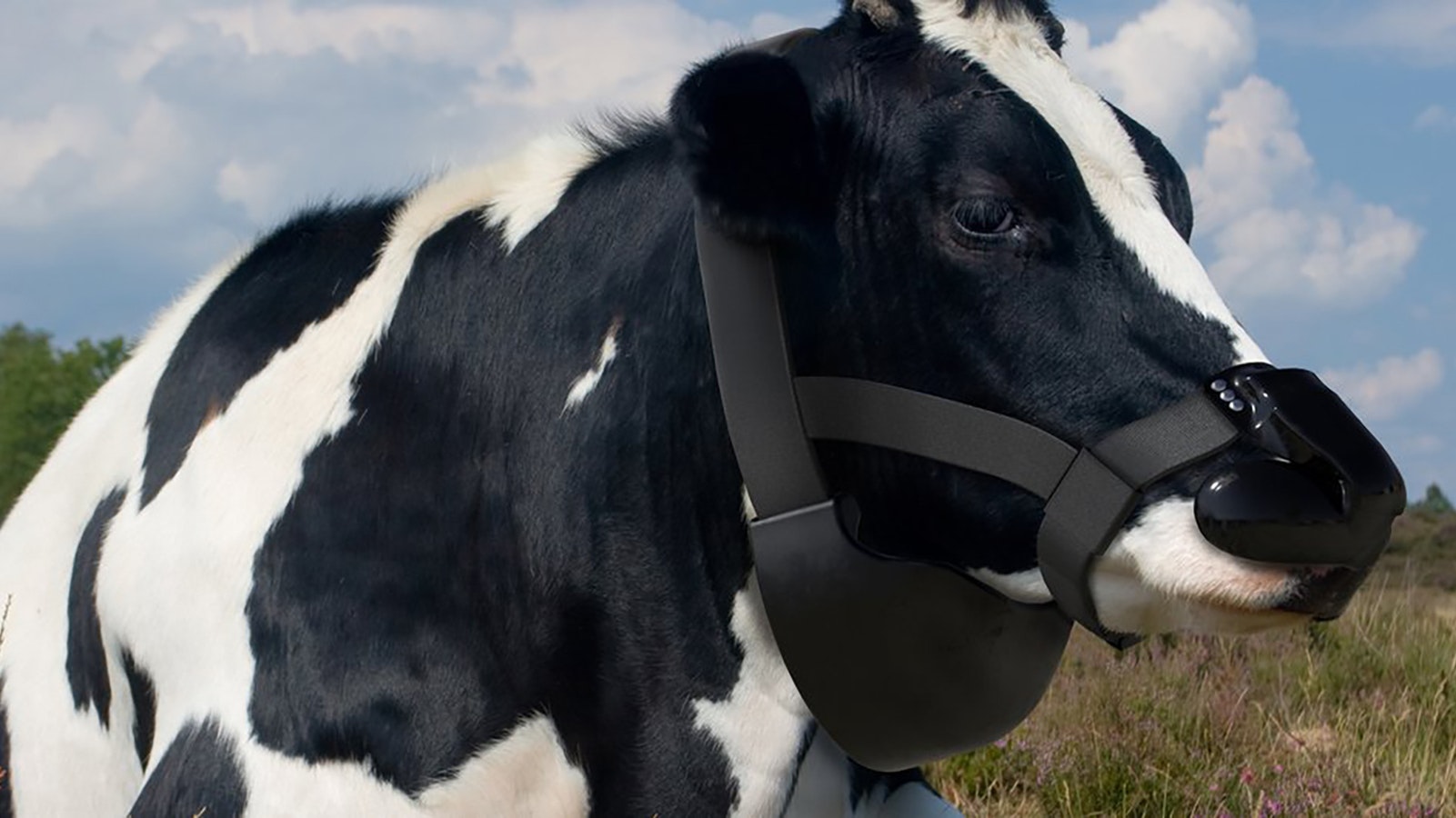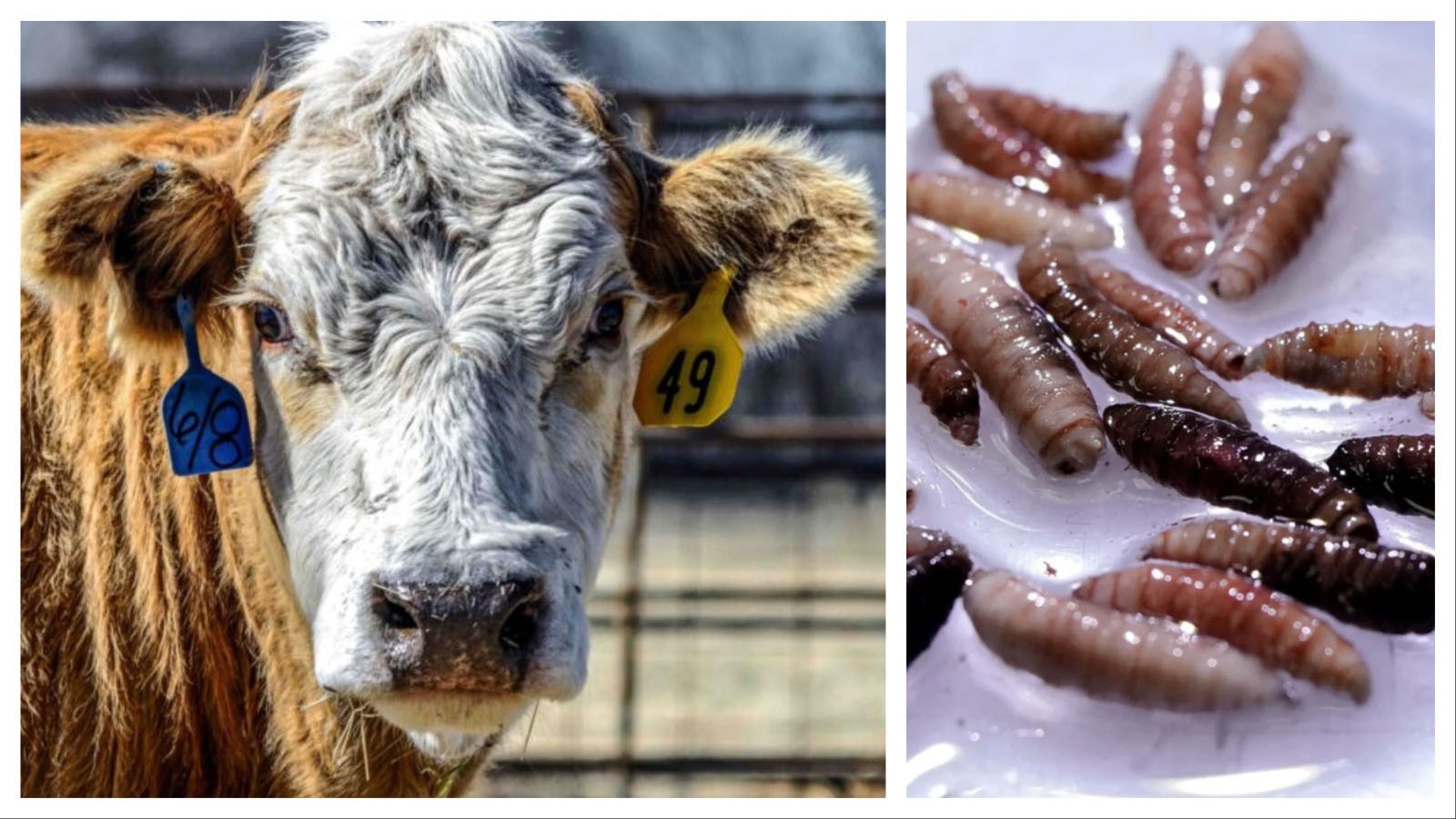Bill Gates, who takes frequent flights on private jets, is funding another venture to address the problem of methane emissions from cow burps.
The Bill and Melinda Gates Foundation awarded a $4.8 million grant this month to London-based Zelp, a company developing a face mask for cattle designed to capture the methane produced by animal burps and turn it into carbon dioxide.
Cutting Edge
Contrary to popular belief, it’s not the gas coming out the back end of a cow that’s a problem for the planet. Most of a bovine’s methane is belched.
According to Zelp’s website, a device attached to the cow’s head routes the methane exhaled by the animal through a catalytic mechanism, which oxidizes the methane resulting in a combination of carbon dioxide and water vapor.
Methane is estimated to cause 85 times more warming than carbon dioxide, thereby the Zelp device will reduce the threat cows pose to life on this planet.
More than keeping the world safe from the cow, the device uses the methane oxidation as an energy source, which reduces the need for batteries.
‘Pickle-Headed’ Idea
Brett Moline, director of public and governmental affairs for the Wyoming Farm Bureau Federation, wonders if the device needs to be removed for feeding.
According to the company’s website, the device is attached to the cow following weaning, and then it’s worn at all times throughout the animal’s life.
Even if it doesn’t impede feeding, Moline told Cowboy State Daily gas masks for cows would be entirely impractical.
“It’s one of the most pickle-headed ideas I’ve ever heard of,” Moline said.
While the company’s website says the devices monitor an animal’s well-being, and the company is doing tests to ensure the animal’s aren’t harmed by the devices, Moline isn’t so certain.
“To hinder their ability to respirate naturally? It’s not the stupidest idea I’ve ever heard, but by golly it’s in the top 10,” Moline said.
Mask Mandates
This is not the first Gates-funded venture to address the emissions of cattle.
Gates was among other billionaires funding an Australian company that’s developing seaweed supplements that are added to a cow’s diet to reduce the emissions it burps out.
Jim Magagna, executive vice president of the Wyoming Stock Growers Association, told Cowboy State Daily that while these efforts may seem laughable, when wealthy and influential people are becoming obsessed with cow emissions, that can translate into policies that are imposed on ranchers.
“It simultaneously concerns me and amuses me,” Magagna said. “They’re in a position where they can push for regulatory requirements. And that could be disastrous for the industry.”
Moline said regulations add costs to producers who are operating on razor-thin margins that aren’t always considered by the policymakers.
Practical Solutions
Estimates of the total emissions in the U.S. from the cattle industry range from 2.5% to 3.3%.
Moline said that if people are so concerned with these small amounts of emissions, that says we have it pretty good in America.
“A bigger concern I have is the multitude of people that don’t have enough to eat. That’s where we need to be putting our resources,” Moline said.
Magagna said good range practices increase carbon sequestration by promoting plant health on grazing lands. Putting more resources into that, he said, would probably produce better results.
“There’s room for advancement in some of those areas, and if some of those people would direct their resources there rather than things that just get them wild attention, it just might do some good,” Magagna said.
There is more practical research being done to find ways to reduce cattle emissions, Moline said. Colorado State University, for example, has research programs exploring ways to change the diet of cattle to reduce their emissions.
“That’s much more practical and useful than putting a silly old mask on an animal,” Moline said.





